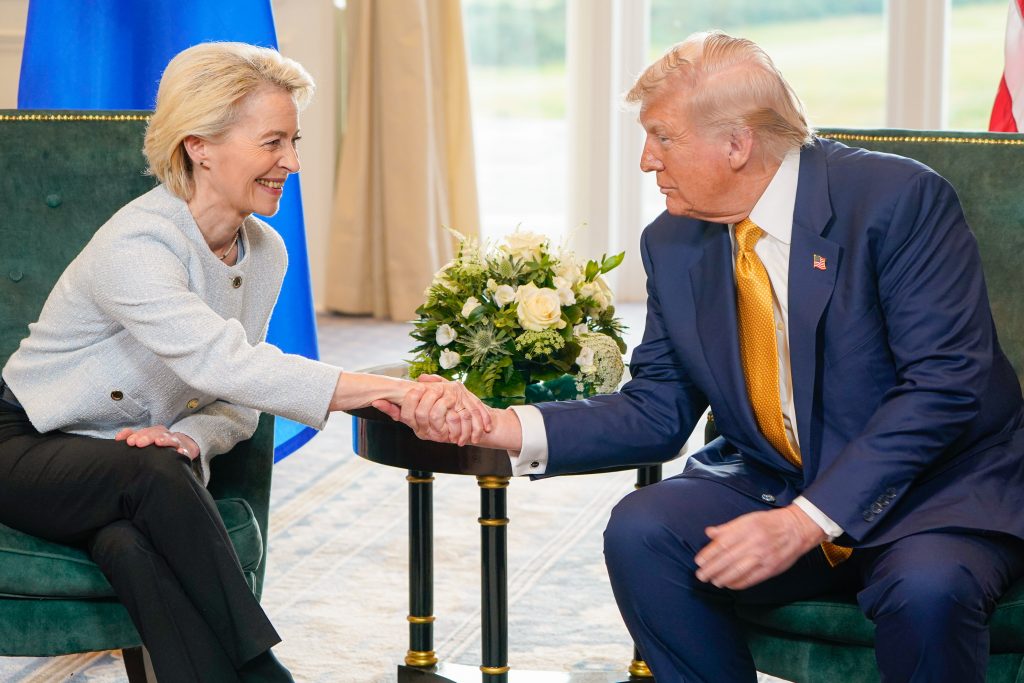Hartmut Bühl – European News Journal, Paris

In the tariff war with Europe, the European Commission’s task was to prevent things from worsening. It is too easy to accuse Ursula von der Leyen’s Commission II of capitulation, as it had to align the interests of 27 nations within a crystal-clear set of rules dictated by competition. So far, the Commission has succeeded, not counting a sudden change of mind of the American president.
Europe’s economic strength is certainly a pawn in von der Leyen’s hands, but she cannot exploit it to her heart’s content, as Europe’s security is almost entirely dependent on the United States. This leaves Europe exposed to all kinds of US pressure, including economic, for years to come, until Europe can provide for its own defence.
Trump’s approach to China is quite different. He had to learn that China is ruled by an autocratic decision-maker who is capable of long-term planning and not dependent on the US. Xi Jinping also pursues unlimited expansionism, is militarily in shape, and is preparing for war with the US over Taiwan. He flatly rejected Trump’s proposals in the tariff dispute, and renegotiations are taking place for another 90 days. And the Chinese president has something else: rare earth and technological components that American industry needs for its work.
The European Union’s weakness is clearly its still inadequate strategic capabilities and the shortage of personnel and military equipment in the new era of geopolitical competition. If Europe cannot defend itself and contribute to world peace in the future, the Union will be eliminated from the power play among the “big” powers.






